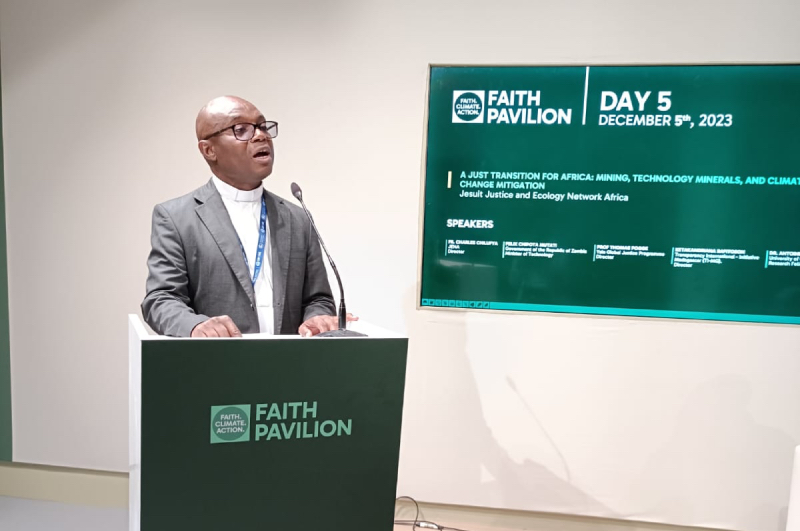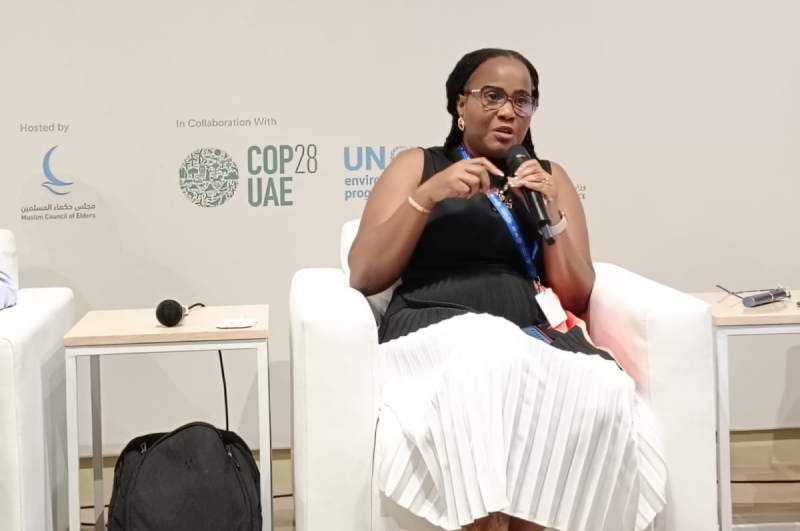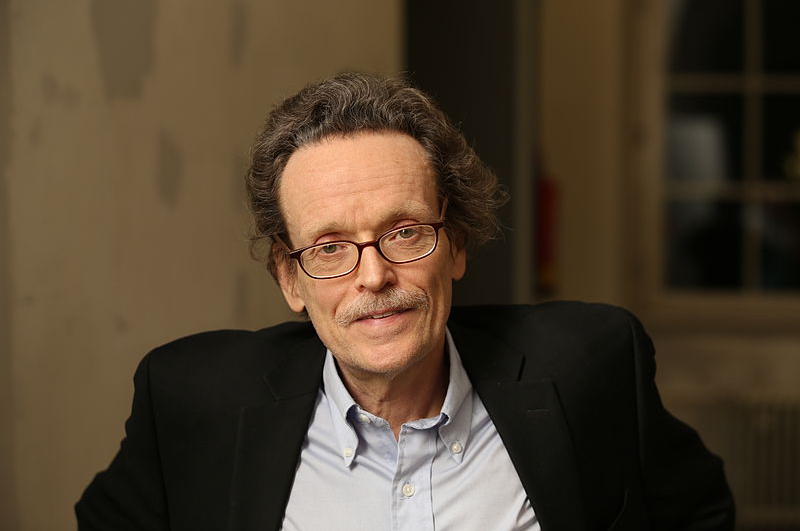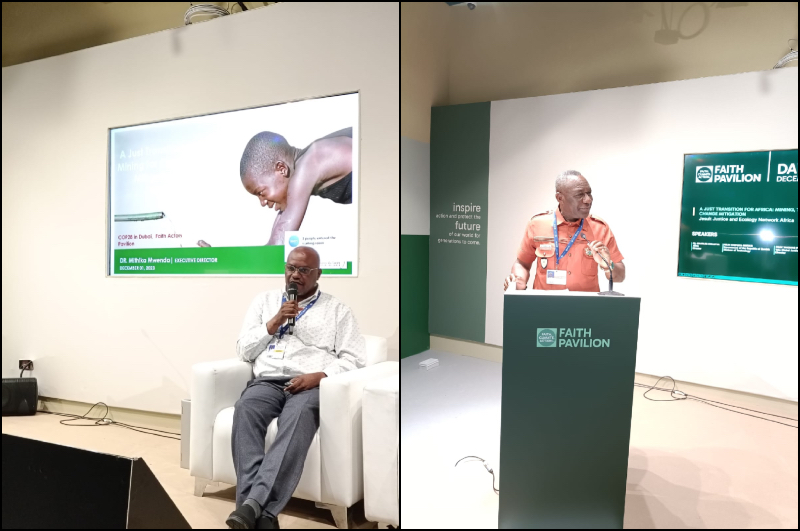JENA and PACJA Host “A Just Transition for Africa: Mining for Climate Change Mitigation – Ethical Perspectives” Side Event at COP 28
The shift to clean energy systems, including in transport, to keep pace with the global net-zero emissions by 2050 target is set to drive a huge increase in demand for critical minerals globally. This increased demand presents environmental, economic, geopolitical, and trade consequences for Africa. There is a need for the African region to capitalize on the drive for green transition to drive economic growth, support sustainable development, create green jobs and reduce poverty and inequality.
DUBAI, 6th December 2023 – The Jesuits Justice and Ecology Network Africa (JENA) in collaboration with the Panafrican Climate Justice Alliance (PACJA) successfully hosted a side event titled “A Just Transition for Africa: Mining for Climate Change Mitigation – Ethical Perspectives” on the 5th of December 2023 during COP 28. The event, held under the broader theme of “Just Energy Transition, Industry, and Trade,” aimed to foster dialogue at the intersection of faith, ethics, climate change mitigation, and a just transition within the mining sector in Africa.
Speaking at the event, Fr. Charles Chilufya, S.J, Director of JENA said that, “At the heart of global climate climate politics lies at deeply human story, one that extends far beyond the realm of carbon emissions and reaches into the essence of what it means to be a global community. The narrative is often dominated by carbon metrics and emission targets. However, beneath the veneer of these discussions lies a stark reality: the developed world’s inaction and financial neglect are costing lives in the developing world. This is not merely a game of numbers or economic leverage; it is a profound humanitarian crisis.”

The event brought together prominent voices in the field to discuss and advocate for ethical and sustainable practices within the mining sector in Africa, among them Dr. Antoinette Tsiboe-Darko from the Centre for Social Policy Studies, University of Ghana, who stressed the need for a more ethical and inclusive approach to mining and the enforcement of reclamation and restoration of ecosystems as part of mining contracts African governments issue.

Prof. Thomas Pogge of Yale University who joined in online, urged the world to consider adopting the the Ecological Impact Fund (EIF) as a solution to this crisis. In his presentation, Prof. Pogge shed light on this new solution, stating that the EIF would be an international financing facility that would enable originators of innovative green technologies to exchange some of their monopoly privileges in return for impact rewards. It would basically be a new market where parties mutually benefit competitively while achieving reduced emissions.

Other speakers included Philip Kilonzo, Head of policy advocacy and communications at PACJA, and Hon. Dr. Henry K. Kokofu, Executive Director of the Environmental Protection Agency (EPA) in Ghana who both emphasized the importance of African nations in undertaking value addition of mined resources locally.

Rev Dr Paul Paul Igweta, the AMECEA Secretary for Social Justice and Ecology,on the other hand gave a theological reflection urging the world to be fair and not take advantage of Africa’s generosity in giving its technological minerals at the expense of its environment and its people.
About JENA:
The Jesuits Justice and Ecology Network Africa (JENA) is a leading organization working at the intersection of social justice, environmental sustainability, and ethical practices in Africa.
For more information, email Fr. Charles Chilufya S.J via email cchilufya@jesuits.net or Tel: +254 786 584784.
About PACJA:
The Panafrican Climate Justice Alliance (PACJA) is a continental coalition of civil society organizations championing efforts to address climate change and promote climate justice across Africa.
###




